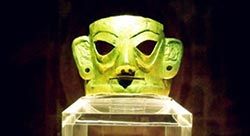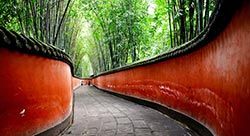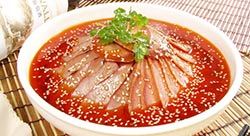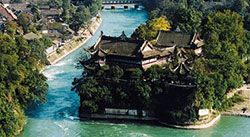Travel Information
Chengdu is located in the west of Sichuan Basin and in the center of Chengdu Plain, the city covers a
total area of 12.3 thousand square kilometres (4,749 square miles) with a population of over 11 million.
Chengdu is well-known for lovely giant pandas. You can not only see giant pandas and panda cubs, but you
can also take care of them as a panda keeper.
Chengdu is also famous for delicious Sichuan food like kung pao chicken and hotpot. You can experience
cooking the most authentic Sichuan cuisine with a local chef.
The areas to the west of Chengdu offer breathtaking natural scenery. Jiuzhaigou National Park and
Huanglong National Park are well-known for their clean lakes, waterfalls, colorful ponds, snowcapped
mountains, and gorges. The Chengdu to Jiuzhaigou travel route is one of China’s most scenic
itineraries.
Construction of the Dujiangyan irrigation system began in the 3rd century B.C. This system still
controls the waters of the Minjiang River and distributes it to the fertile farmland of the Chengdu
plains. Mount Qingcheng was the birthplace of Taoism, which is celebrated in a series of ancient
temples.
Chengdu is a large but relaxed city, with many natural, cultural, and historical sights in and around
it.

|
Giant Panda Breeding and Research Base - See baby pandas |

|
Sichuan Opera |



